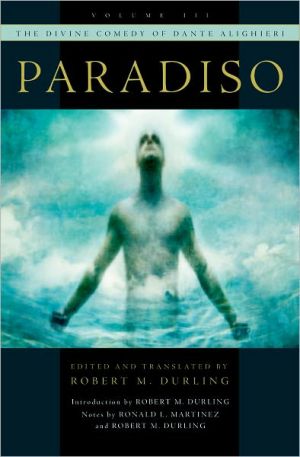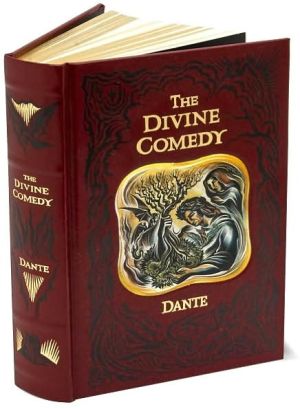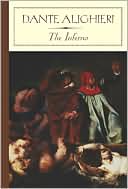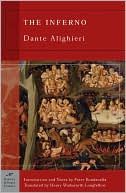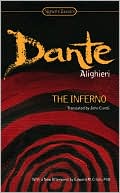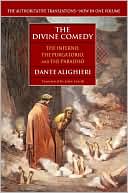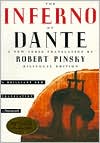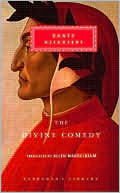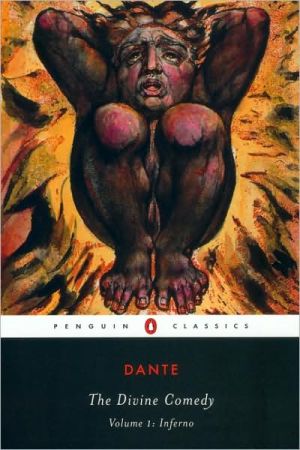The Divine Comedy of Dante Alighieri: Volume 3: Paradiso
Robert Durling's spirited new prose translation of the Paradiso completes his masterful rendering of the Divine Comedy. Durling's earlier translations of the Inferno and the Purgatorio garnered high praise, and with this superb version of the Paradiso readers can now traverse the entirety of Dante's epic poem of spiritual ascent with the guidance of one of the greatest living Italian-to-English translators. \ Reunited with his beloved Beatrice in the Purgatorio, in the Paradiso the...
Search in google:
One of the greatest living Italian-to-English translators, Durling has at last completed his rendition of the third and final volume of Dante's masterful literary epic, The Divine Comedy. As with the two preceding volumes, Durling's precise and powerful translation of Paradiso appears alongside the original Italian text recounting Dante's journey through heaven with the beautiful Beatrice. The end of each canto contains thorough yet succinct notes by Durling and Ronald Martinez that acquaint the reader with Dante's medieval world and his reference points. Thus the volume will appeal to the general reader as well as lovers and students of Italian literature, language, and history. While English-language translations of the Commedia abound, the accuracy and lyrical verve of Durling's translations have earned him a place as one of the all time greats.
How to Read DanteixTranslator's NotexixThe Inferno3Introduction5Cantos16The Purgatorio271Introduction273Cantos286The Paradiso583Introduction585Cantos596
\ From the PublisherPraise for Durling's Inferno and Purgatorio\ 'This new edition of Inferno is distinctly user-friendly....Serious students-in or out of the classroom-who...examine the original poem alongside a readable and reliable prose translation will find this edition excellently suited to their needs.'-The Christian Science Monitor\ 'A useful volume for students and first-time visitors to Dante's cosmos.'-Publishers Weekly\ 'In this new translation, Durling tries to be as concrete as possible, producing a version that is more fluent and accurate than the versions of Mandelbaum and Musa.... Highly recommended.'-Library Journal\ 'Like the Inferno edition that preceded it, the Durling-Martinez Purgatorio, with its beautiful translation and superb apparatus of notes, is simply the best edition of Dante's second canticle in English. No other version offers anything close to what we find gathered here in one volume.'-Robert Harrison, Professor of Italian, Stanford University\ "As Durling and Martinez complete their monumental three-volume presentation of Dante's masterpiece, we can sense their triumph and elation, despite their characteristic modesty. This, after all, is the volume with which they can demonstrate the fullness and consistency of Dante's great project, its final approach to what they describe in one footnote as 'a pitch of intensity unique in all literature.' The scholarship, as always, is graceful, comprehensive, and acute, and it surrounds a translation that is so carefully considered and fully realized as to be, at times, quite breathtaking." --David Young, translator of The Poetry of Petrarch\ "Durling and Martinez deliver Paradiso in elegant English prose faithful to Dante's Italian. The general introduction and succinct notes to each canto enable an informed reading of a frequently daunting text, while the longer 'Additional Notes,' bibliography, and indices will more than satisfy the most exigent critic. Marvelous, in the richest medieval sense of the term." --Michael Wyatt, author of The Italian Encounter with Tudor England\ "At the end of his poem Dante claims that his 'high imagining failed of power,' but Durling and Martinez have suffered no such fate in completing their translation of the Divine Comedy. Their Paradiso is a crowning achievement, a work of lucid prose and of impeccable accuracy. Readers will find themselves rewarded by the succinct, richly informative notes at the end of each canto and the extended essay-notes at the back of the volume. A splendid accomplishment." --Richard Lansing, editor of The Dante Encyclopedia\ \ \
